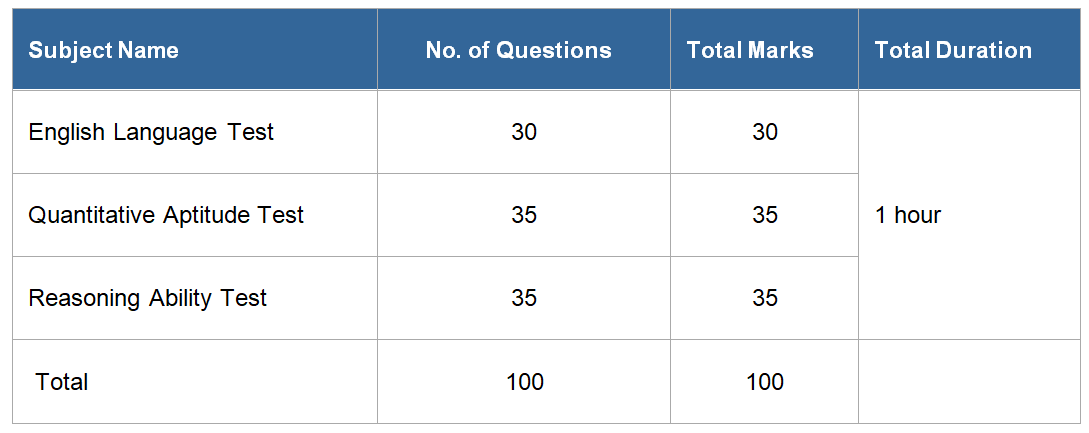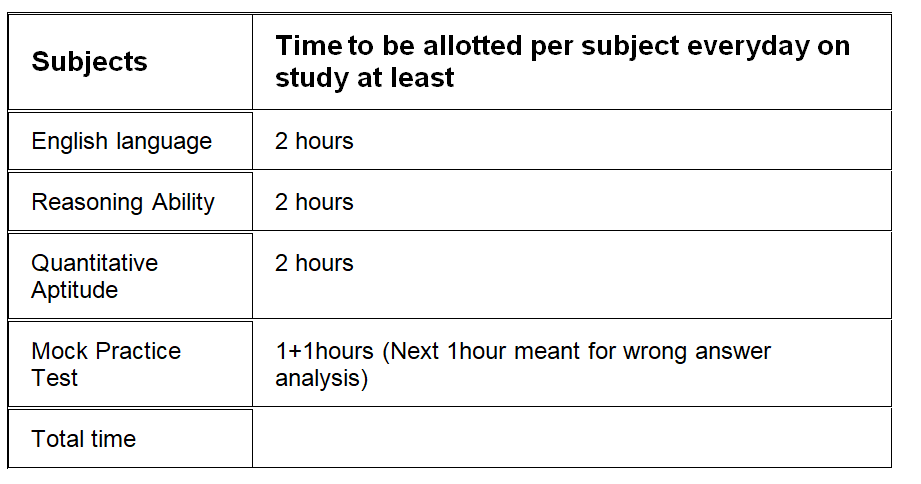Please Note: This article is a contribution by Grade-up, India’s largest online learning community. We have tied up with Grade-up and will bring to you a special series of blogs by them. The folks at Grade-up are taking up this great initiative to help out you guys, so make sure you read these blogs on a regular basis.
IBPS stands for INSTITUTE OF BANKING PERSONNEL SELECTION. It conducts various types of examinations for the purpose to recruit personnel in the areas of banking industries in India. The scorecard provided by this organization on the basis of the individual’s performances becomes the basis of selection or rejection of the candidates. This scorecard not only opens the entry gate of banking organizations belonging to the public sectors but several private sectors banks and many other financial and non-financial organizations situated in India. IBPS Clerk Preliminary exam is the first step to enter to find out a banking job in the banking industry in India. IBPS Clerk post is assumed a very charming job in India. So, there is a stiff competition among the aspirants of clerks. The craze of bank clerk job is so high that candidates apply for this post in many of lakhs. Once you crack the preliminary exam, you become eligible to appear for the next level of exam that is mains exam. And, the best part of it is there is no hurdle of interview now where candidates still remained fearful of their final selection in earlier exams previously. So, get ready to secure your seat and prepare for it with a big strategic planning. Grade up has brought a guideline to help you. Have a Good Luck for your coming Exam.
Important Topics to be focused upon:
IBPS Preliminary (Prelims) Exam consists of three (3) subjects –
1. English Language
2. Quantitative Aptitude
3. Reasoning Ability
1. In English Language – In this section, the question paper includes 30 questions in total of 30 marks ie; one mark for each question
The topics from this section getting incorporated generally these days are:
Spot the Error, Fill in the Blanks, Comprehension Passage, idioms and phrases, Para Jumbles, SentenceRearrangement, Spelling Error, Noun, Pronoun, Adjective, Verbs, Adverb, Preposition, Conjunction, Direct -Indirect, Vocabulary, Subject plus Verb Agreement.
The questions in this exam will be of objective type in nature. It includes 30 questions in this section.
2. In Quantitative Aptitude Test – In this section, the question paper includes 35 questions in total of 35 marks ie; one mark for each question
The topics from this section getting incorporated generally these days are:
Number System, Average, Simplification, Age-based Problems, Percentage, Profit and Loss, Discount,Simple Interest and Compound Interest, Ratio and Proportions, partnership, time and work, Time and Distance, Trains, work and wages, Allegations or Mixtures, Pipes and Cisterns, Boat and Stream, Probability, Permutation and Combination,Approximate Values, Linear Equations, Quadratic Equations, Inequalities, Mensuration, Data Sufficiency, Data Interpretation, Pie Chart, Bar Diagram, Line Graph, etc.
The questions in this section will also be of objective type in nature. It includes 35 questions in this section.
3. In Reasoning Ability Test – In this section, the question paper includes 35 questions in total of 35 marks ie; one mark for each question.
Reasoning has further been parted with into three major categories-
A. Verbal Reasoning
B. Logical Reasoning
C. Non- Verbal Reasoning
A. Verbal Reasoning :
The topics from Verbal Reasoning section getting incorporated generally these days are:
Number Series Test, Letter Series Test, Alphabet test, Classification, Analogy, Linear Sitting Arrangement, Circular Sitting Arrangement, Coding-Decoding, Blood Relations, Ranking and Order, SequenceTest, Direction Test, Puzzle Test, Clock and Calendar etc.
B. Logical Reasoning:
The topics from Logical Reasoning section getting incorporated generally these days are:
Syllogism, Decision making, Input/output, Statement and assumptions, Statement and conclusions, Statement and arguments, Statements and Courses of Action, Assertion and reason etc.
C. Non- Verbal Reasoning:
Non-Verbal Reasoning these days are considered as out of fashion but according to the experts advice it is recommended that students must remain aware and updated from this section also. It must be a wise decision to be acquainted with these topics as well than to get risk when questions come next time all of the sudden. So be prepared for this section also.
In this section the questions can come from such topics :
Figure series, Figure Analogy, Figure Classification etc.
The questions in this section will also be of objective type in nature. It includes 35 questions in this section.
Time management tips:
To know how to manage the time in the exam hall, you must go through the table prescribed by the IBPS which is as follows:

Hence, from the table, you can see that in English Section, Quantitative Aptitude Test Section and Reasoning Ability Test Section ie; from all these sections each question carries one mark each. But if talk about the time to be allotted to every sections, it can be distributed as 20 minutes each in general. But, here it is very important that you have to assess your strength and weakness in each section Individually. For example, If a particular candidate Mohan is strong in Quantitative Aptitude then he must keep minimum time allotted for Quantitative Aptitude section and save some time due to his command on this section and utilize this saved time on other weak sections according to his strength and weakness.
For instance, if another candidate Naureen has strong hold on English then she must spend lesser time on this section and utilize this saved time on other section which is comparatively weaker.
Same strategy applies in case of Reasoning section as well.
Hence, another important aspect is left to discuss about. To click the answer after getting the question solved also takes a few seconds each click which could get accumulated into a few minutes on the whole till the last question attempted. So, these minutes could also be kept aside, on the whole, to make your exam a happy ending as far as lack of time concerns.
Since all the three papers are of qualifying nature so don’t stick with any rigid and tough question from any of the particular sections which seems consuming much more time so that crucial times could not go in vein.
Calculation :
Total number of questions =100
Total time provided = 60 minutes
So, time per question = = 1.67 minutes
Out of these 1.67 minutes you should spend only sixty (60) seconds on attempting each question and rest of .67 seconds could be spent on clicking your right answer carefully so that your hard effort in solving the question should not go waste by clicking wrong answer in hurry due to the lack of timing.
Conclusion: Just keep in mind this plan as standard planning but be prepare to customize it individually as per your need of time left in hand for the next questions.
C. Study Plan:

For better performance in the exam hall, you must learn as much as possible these skills so that you could be able to solve the questions in seconds and save some time to attempt those questions which are tough or time-consuming or you have left initially for second thoughts. You should learn tips and tricks for this purpose. But remember, for it, you must have your concept very clear about.
To score high in the exam hall:
To score high in Reasoning Test
Do sharpen your reading comprehension and text in this section as fast as possible. It is possible but you have to be regular on your practice honestly.
You must score 15 correct Reasoning questions without doing any wrong answer to qualify Reasoning section, as it bears negative marking. If you are not confident about a few of your answer, you should increase your number of questions attempted in that ratio so that you could secure your qualifying marks. For it, you should start with the topic of your hold and interesting you most. Thereafter, you should focus on increasing your score as much as possible to secure your seat in the selection list.
To score high in short span of time with your rigorous practice, you should start with easy and most interesting topics which can decide your selection. These topics can be solved in seconds with accuracy. These topics are :
Series Test, Alphabet Test, Ranking, Coding-Decoding, Analogy, Blood Relations, Direction Test, Seating Arrangement, Puzzle Test etc.
After solving them, you could go forward for logical reasoning like; Syllogism, Statements and Conclusions, Statements and Assumptions etc which are purely based on logic. If you have good control on this part, believe it, you can score full marks in this section by solving these questions.
But, remember if any particular question consumes much more time and you have less time with you then it’s better to skip such question but remember also that you have not skipped most of your question which could minimize your scorecard.
To score high in Quantitative Aptitude
Do sharpen your reading comprehension and text in this section as fast as possible. It is possible but you have to be regular on your practice honestly.
.
You must score 15 correct Quantitative Aptitude Test questions without doing any wrong answer to qualify Quantitative Aptitude section, as it bears negative marking. If you are not confident about a few of your answer, you should increase your number of questions attempted in that ratio so that you could secure your qualifying marks. For it, you should start with the topic of your hold and interesting you most. Thereafter, you should focus on increasing your score as much as possible to secure your seat in the selection list.
To score high in short span of time with your rigorous practice, you should start with Number system, Simplification, Approximate Values, Average Boat and Stream, Time and Work etc those belong to Arithmetical part which are easy to solve comparatively and lesser time-consuming. These topics give you exact answer within a fraction of seconds provided you have practiced more and more and have perfect hold on calculation with accuracy. Thereafter you can attempt Quadratic Equation, Inequalities, Data Interpretation, Data Sufficiency and all other rest of the topic to score highest as per your caliber.
But, remember if any particular question consumes pretty much time and you have less time with you then it’s better to skip such question but remember also that you have not skipped most of your question which could minimize your scorecard
To score high in English Language
Do sharpen your reading comprehension and text in this section as fast as possible. It is possible but you have to be regular on your practice honestly.
.
You must score 15 correct English questions without doing any wrong answer to qualify English section, as it bears negative marking. If you are not confident about a few of your answer, you should increase your number of questions attempted in that ratio so that you could secure your qualifying marks. For it, you should start with the topic of your hold and interesting the most. Thereafter, you should focus on increasing your score as much as possible to secure your seat in the selection list.
To score high in short span of time with your rigorous practice you should start with Common Error, Fill in the blanks, cloze test and Reading Comprehension along with Synonyms and Antonyms. If still, you can do more questions confidently, then go ahead for rest of the topics.
But, remember if any particular question consumes pretty much time and you have less time with you then it’s better to skip such question but remember also that you have not skipped most of your question which could minimize your scorecard













